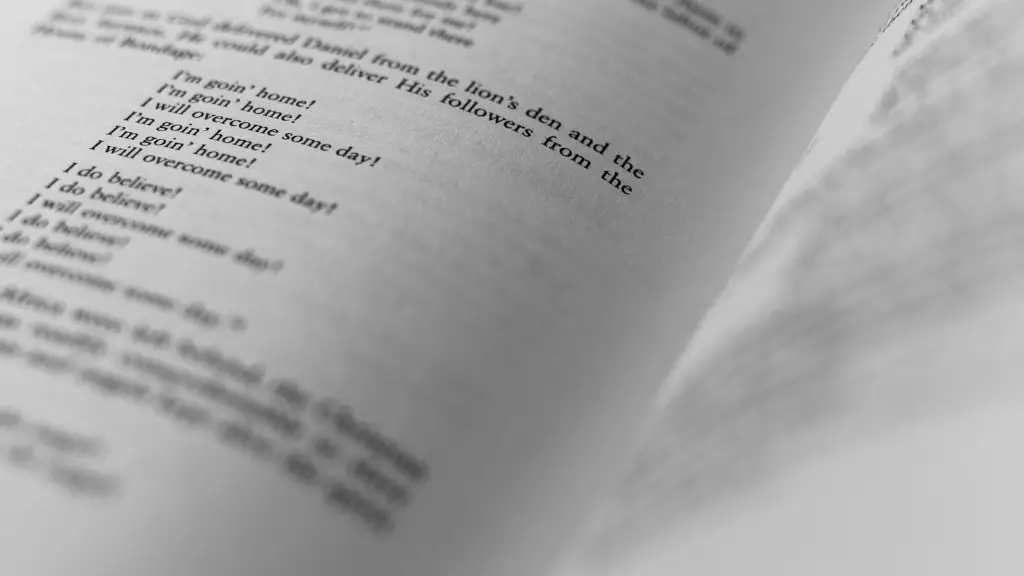Definition of an Elegy in Poetry
Poetry has been around for centuries, and it’s a form of art that has evolved over time. One type of poem is an elegy, and it’s often seen as a special tribute or lament. It’s a solemn poem that is written to commemorate a person or an event that has passed away or come to a close. An elegy is traditionally a long poem, but nowadays it can be written in a few lines or even a single stanza.
The Origins of Elegy
The term “elegy” originates from the Greek form of the word, “elegos.” It means “to lament.” For centuries, poets have been using this form of poetry to express sorrow over loss. Often times it was in reference to someone who was dearly loved or admired. The themes of an elegy are often melancholy and full of grief, but they can also be reflective and uplifting.
Common Elements Found in Elegy Poetry
In general, the tone of an elegy poem is somber and the content can be poetic and heartbreaking. It’s common to find elements of nature in an elegy. For instance, you can find symbols of the sun setting or dark clouds gathering, or nature fading away. In some cases, the poems can also be humorous or ironic.
An elegy often involves the death of someone special. This can be a friend, loved one, family member, or even a pet. The poet may explore memories and experiences that were shared with the deceased. Or, the poet may explore feelings of loneliness or emptiness associated with the death.
The Role of Elegy in Mental Health
Writing and reading elegies is therapeutic for those mourning and grieving a loss. It can be comforting to articulate feelings related to the death, for example sadness, regret, guilt, and despair. The act of mourning helps the individual to cope with the situation and to eventually come to terms with the death.
Psychologists have long recognized that writing and reading elegies can be beneficial for mental health. It can help to create healthy coping mechanisms and can prevent strong, painful emotions from bubbling up.
The Benefits of Elegy Poetry
Elegy poetry is thought to be a universal language. It helps to unite people who have suffered a loss and it can be a form of solidarity between those who are far away and those who are present.
Another benefit is that it can be used to help others to understand, express, and process the depth of grief felt. It can also be a creative form of expression, allowing the individual to articulate difficult feelings. Sharing elegies with others, even if it is anonymous, can bring communities together and bring about peace and healing.
Elegy and Music
Music and poetry are two pieces of art that often go hand in hand. They can be powerful ways to express grief. Elegy poetry has been used for centuries to commemorate weddings, funerals, and other important milestones in life.
In the late 18th century, funeral songs and elegies became fashionable in certain countries. These types of songs were accompanied by somber melodies and eulogies. Musicians, particularly classical composers, wrote and performed these songs, creating an emotional landscape that people can still feel as they listen to them today.
Elegiac Pieces in Literature
A number of renowned writers have written elegy poems and stories. Some of the most famous are John Milton’s “Lycidas” and William Wordsworth’s “Elegy Written in a Country Churchyard.” Other examples include Thomas Gray’s “Elegy Written in a Country Churchyard” and Alfred, Lord Tennyson’s “In Memoriam A.H.H.” All of these poems express how life can end suddenly, how love is powerful and strong, and how death transcends all things.
Elegy Poems in the 21st Century
In recent times, elegies have become popular once again. These days, elegies are not just written in the form of poems but also in other mediums. For example, there are songs, articles, music videos, and videos games that explore the idea of elegy.
More recently, people have been turning to digital platforms to share their elegies. There are countless online platforms, blogs, and channels dedicated to elegises where people can anonymously share their stories and experiences. By doing so, they can help others to cope and to learn more about grief.
Loss and Celebration of Life
For centuries, elegies have been a way to remember those who have passed away, to honor them, and to express a sense of sorrow. Even though they contain some sorrowful content, they also come from a place of love and gratitude. They offer an opportunity to reflect and to celebrate the life of the deceased.
The content of contemporary elegies can range from humorous to devastating. What ties them all together is the recognition that death is a part of life and that it’s important to remember and to honor those who have passed away.
The Formal Qualities of Elegy
When it comes to the formal aspects of an elegy, there is no single set of rules. Many contemporary elegies are freeform in structure, while others follow the traditional form of an eight-line stanza. There are also other types of elegies that don’t necessarily include rhyme or meter.
An elegy can be written in a variety of styles and genres, from prose to lyrical. However, the common element is usually the focus on themes of sadness, loss, and pain. The poet can also make use of imagery and vivid descriptions to create a sense of mourning and sorrow.
The Power of Elegy
Elegies have the power to bring comfort to those mourning a loss. They can also help to provide closure to a difficult chapter in life or in the life of a loved one. Many people turn to the writing of elegies as a way to come to terms with the death of someone close to them.
Elegies also have the power to inspire, to bring peace to those grieving, and to allow people to come together and share stories of loss and remembrance. They are a powerful and timeless way to express grief and remembrance.


